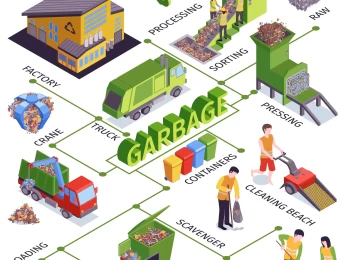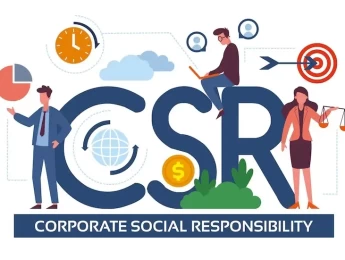Communication is a vital aspect of any organisation that can often dictate its success or failure. This is especially true for government organisations, which rely heavily on the effectiveness of their internal and external communication.
Communication is essential within government organisations for various reasons. They must be able to explain policies, rules, and regulations clearly and concisely so that all public members can engage with them. Not only does the specific language matter, but so does how it is told. The type of communication method can influence how a message is received and impact the organisation's reputation.
To guarantee successful communication, there must be an understanding of the available channels and who the target audience is. Traditional and social media have greatly evolved, and it is important to know how to address these platforms. Alongside these open areas of communication, those involved must know how to manage backlash and negative responses in a calm and collected manner and continue to promote the organisational message respectably.
Upon completion of this course, participants will be able to:
- Understand the vitality of effective communication for government employees.
- Analyse organisation-wide issues and identify causes and solutions.
- Comprehend the value of external communication fields – social media, crisis, branding, partnerships, and reputation.
- Assess the benefit of effective internal communication strategies.
- Explore the consequences of poor internal and external communication.
- Drastically improve all methods of communication and ensure all communication channels are fully accessible.
- Identify the most effective communication methods and techniques for different situations.
- Establish government campaigns and accurately monitor communication performance.
This course is designed for anyone within government organisations who wishes to develop their communication knowledge and skills. It would be most beneficial for:
- Operation Managers
- Communication Managers
- Social Media Managers
- Internal Communications Personnel
- Senior Executives
- Stakeholders in government organisations.
- Project Managers
- Accessibility Managers
This course uses a variety of adult learning styles to aid full understanding and comprehension. Participants will investigate established government organisations to highlight key methods, tools and strategies surrounding communication, and further identify situations where communication was lacking.
They will participate in a variety of learning exercises designed to aid in the full development of the knowledge and skills related to government communication. These will include seminars, discussions, case studies, and group role-playing activities. By working in a group setting, participants can engage their newly learned skills and offer and receive constructive criticism from others.
Day 5 of each course is reserved for a Q&A session, which may occur off-site. For 10-day courses, this also applies to day 10
Section 1: Introduction to Strategic Communication
- Identifying the key benefits of effective communication.
- Utilising communication to build rapport and improve reputation on a personal and governmental level.
- Understanding government information and the inner networking aspects.
- Analysing stakeholders and important external personnel.
- How culture influences culture and vice versa.
- Effective planning of goals, objectives, strategies, and resources.
Section 2: Communicating with the External Environment
- Evaluating the vast influence of media on a local, regional, and global level.
- Reviewing the evolution of communication through the mass use of social media.
- Maintaining media relations at a personal and governmental level.
- Establishing and managing a brand that reflects personal and government beliefs and goals.
- Associated risks with media and crisis communication and management.
Section 3: Establishing Effective Internal Communication
- Involving employees with organisational success.
- Analysing the advantages and disadvantages of different methods of communication.
- Adjusting communication methods based on the receiving audience.
- Reinforcing communication channels and ensuring full accessibility – screen-reader friendly, braille alternatives and translators.
- Increasing internal inline engagement.
- The importance of line-management communication.
Section 4: Utilising Communication Tools
- Synergising different communication channels to promote the same message.
- Identifying different print and digital tools, their benefits, and limitations.
- Sponsorships and event involvement to encourage communication.
- Directing a message through appropriate channels.
- Understanding when communication is necessary or should be reduced.
Section 5: Communication in Practice.
- Connecting the dots with planning, strategy, and execution.
- Focusing on the non-verbal aspects of communication – body language and presentation.
- Communicating with confidence, clearness, trust, and integrity.
- Responding appropriately to backlash and resistance.
- Monitoring and measuring performance to identify areas for improvement.
Upon successful completion of this training course, delegates will be awarded a Holistique Training Certificate of Completion. For those who attend and complete the online training course, a Holistique Training e-Certificate will be provided.
Holistique Training Certificates are accredited by the British Assessment Council (BAC) and The CPD Certification Service (CPD), and are certified under ISO 9001, ISO 21001, and ISO 29993 standards.
CPD credits for this course are granted by our Certificates and will be reflected on the Holistique Training Certificate of Completion. In accordance with the standards of The CPD Certification Service, one CPD credit is awarded per hour of course attendance. A maximum of 50 CPD credits can be claimed for any single course we currently offer.
- Course Code IND17-103
- Course Format Classroom, Online,
- Duration 5 days










